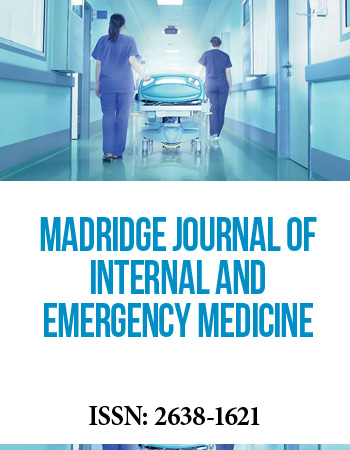International Translational and Regenerative Medicine Conference
April 25-27, 2018 | Rome, Italy
Systematic Identification of MACC1-Driven Metabolic Networks in Human Colorectal Cancer
1Experimental and Clinical Research Center, Charité – Universitaätsmedizin Berlin, and Max-Delbruck-Center for Molecular Medicine, Germany
2Berlin School of Integrative Oncology, Charité – Universitaätsmedizin Berlin, Germany
3Medical Department of Hematology, Oncology, and Tumor Immunology, and Molecular Cancer Research Center (MKFZ), Chariteé - Universitaätsmedizin Berlin, Germany
4German Cancer Consortium, German Cancer Research Center (DKFZ), Germany
5Department of Hepatology and Gastroenterology, Charité – Universitaätsmedizin Berlin, Germany
6Mathematical Modeling Group, Max Delbruck Center for Molecular Medicine, Germany
7Department of Nuclear Medicine, Charité - Universitaätsmedizin Berlin, Germany
8Berlin Experimental Radionuclide Imaging Center (BERIC), Charité - Universitaätsmedizin Berlin, Germany
9Piramal Imaging, Germany
MACC1, a master regulator of metastasis, is involved in most hallmarks of cancer, including deregulated metabolism. Fragmentary data on the role of MACC1 in gastric and hepatocellular cancers exist, whereas its role in colorectal cancer metabolism remains totally unknown. Here, we report a systematic analysis of MACC1-driven metabolic networks by elucidation of context dependent alterations of nutrient utilization, metabolic tracing using 13C-labeled metabolic substrates and flux analysis. In this context, the relation of MACC1 to the utilization of glucose, glutamine, pyruvate, lactate and palmitate metabolic substrates was investigated. Our results demonstrate that MACC1 exerts multiple effects on CRC cell metabolism, where most of them can be subdivided onto those which mediate increased nutrient depletion and those where MACC1 alters the metabolic pathways by affecting metabolite production or turnover from metabolic substrates. In particular, MACC1 was found to supportutilization,on multiple levels,of glucose, glutamine and pyruvate metabolic substrates in environment-dependent manner. Our results suggest that MACC1 is a novel regulator of cancer cell metabolism, and its targeting will affect cancer metabolic pathways thus leading to homeostatic imbalance and reduced cancer cell survival.
Biography:
Inna Zaimenko is a PhD student at Charitè University Medicine & Max Delbruck Centre (from January 2015–Present), was a Student Research Assistant (December 2013 – November 2014) and Master thesis (April 2014 – October 2014) from DKFZ German Cancer Research Centre. She was a fellow from University of Tartu in April 2011 – May 2011. She obtained her Masterʼs Degree, Oncology and Cancer Biology from Heidelberg University.
She was awarded the PhD fellowship-Berlin School of Integrative Oncology (BSIO) at Charitè University Medicine, Master Study scholarship from German Academic Exchange Service (DAAD). And Travel Grant to attend FEBS Practical Course from Federation of European Biochemical Societies (FEBS). Certification from edX - Verified Certificate for Case-Study: RNA-Seq data analysis and for Making Science and Engineering Pictures: A Practical Guide to Presenting Your Work.


